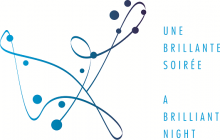
Cancer probe chosen for top science discovery
2017 Québec Science Discovery of the Year Award goes to the cancer-detection probe developed by Kevin Petrecca and Frédéric LeblondQuébec Science magazine’s 25-year tradition continues: every fall, a jury comprised of researchers and journalists selects the top 10 most impressive discoveries in Quebec in the past year and the public is asked to vote to select the winner.

Neuro XXceptional: Celebrating exceptional women
Women scientists and clinicians are creators and changemakers, expanding the boundaries of human knowledge

The Neuro and Thermo Fisher Scientific Partner to Fight Neurodegenerative Disease
Industry and academia to share expertise in effort to develop improved methods to produce and characterize antibodies and reagents for neurological research

The onset of Alzheimer’s disease: the importance of family history
You’re about to turn 60, and you’re fretting. Your mother has had Alzheimer’s disease since the age of 65. At what age will the disease strike you? A Canadian study published in JAMA Neurology shows that the closer a person gets to the age at which their parent exhibited the first signs of Alzheimer’s, the more likely they are to have amyloid plaques, the cause of the cognitive decline associated with the disease, in their brain.

The Neuro joins neuroscience data sharing partnership
Canadian Open Neuroscience Platform will make disseminating and publishing data easier
Modern neuroscience research can produce massive amounts of data, which researchers can use to find patterns revealing anything from the first physiological signs of Alzheimer’s disease to a new drug target that could stop neurodegeneration. However, this data must be stored, processed, and distributed effectively.

A non-invasive method to detect Alzheimer’s disease
Volume in brain region linked to physiological changes characteristic of ADNew research has drawn a link between changes in the brain’s anatomy and biomarkers that are known to appear at the earliest stages of Alzheimer’s disease (AD), findings that could one day provide a sensitive but non-invasive test for AD before cognitive symptoms appear.

New Open Science partnership will pave way for better treatments, faster
NeuroSGC created to increase volume and quality of cell assays for drug discoveryA new partnership between the Structural Genomics Consortium (SGC) and the Montreal Neurological Institute and Hospital (The Neuro) will use a unique open science framework to help scientists discover new targets for drug development for neurological diseases.

The MNI forms promising Open Science partnership with Takeda
Industry and academia team up for the benefit of people suffering from ALSA unique industry-academia partnership will increase the rate at which promising drug compounds can be tested as potential treatments for amyotrophic lateral sclerosis (ALS), a disease with no known cure that affects 200,000 people worldwide.

Alan Evans receives Canada 150 medal
Senate of Canada recognizes outstanding contributions to the communityThe Senate of Canada has awarded Alan Evans a Canada 150 medal for his commitment to advancements in Alzheimer’s disease and palliative care research. He was nominated by Senator Judith Seidman, a former research fellow at the Montreal Neurological Institute and Hospital, and Associate Professor of the McGill School of Social Work.

Three MNI researchers receive ALS funding
Grants for Heather Durham, Stefano Stifani and Jay Ross total just over $2 millionThree MNI researchers have received grants from the ALS Society of Canada worth a total of more than $2 million.

Now you like it, now you don’t
Brain stimulation can change how much we enjoy and value musicEnjoyment of music is considered a subjective experience; what one person finds gratifying, another may find irritating. Music theorists have long emphasized that although musical taste is relative, our enjoyment of music, be it classical or heavy metal, arises, among other aspects, from structural features of music, such as chord or rhythm patterns that generate anticipation and expectancy.

Transformative donation of $16 million establishes new autism research centre at the Montreal Neurological Institute
The Azrieli Centre for Autism Research will foster innovations in therapy and a better understanding of Autism Spectrum Disorder.
A new research centre in Montreal will help lift the shroud of mystery surrounding autism spectrum disorder (ASD), and lead to the development of better diagnostic tools and more effective therapies for people with autism.

The Neuro’s top brain cancer fundraiser returns
A Brilliant Night has donated a total of $1.6 million since 2015A night dedicated to the memory of those lost to brain cancer and in honour of those still fighting the disease will raise money for research that will lead to better treatments.

Predicting when a sound will occur relies on the brain’s motor system
Research shows how the brain’s motor signals sharpen our ability to decipher complex sound flowsWhether it is dancing or just tapping one foot to the beat, we all experience how auditory signals like music can induce movement. Now new research suggests that motor signals in the brain actually sharpen sound perception, and this effect is increased when we move in rhythm with the sound.

Mitochondria drive cell survival in times of need
Discovery points to possible target for cancer drugsMcGill University researchers have discovered a mechanism through which mitochondria, the energy factory of our body’s cells, play a role in preventing cells from dying when the cells are deprived of nutrients – a finding that points to a potential target for next-generation cancer drugs.






